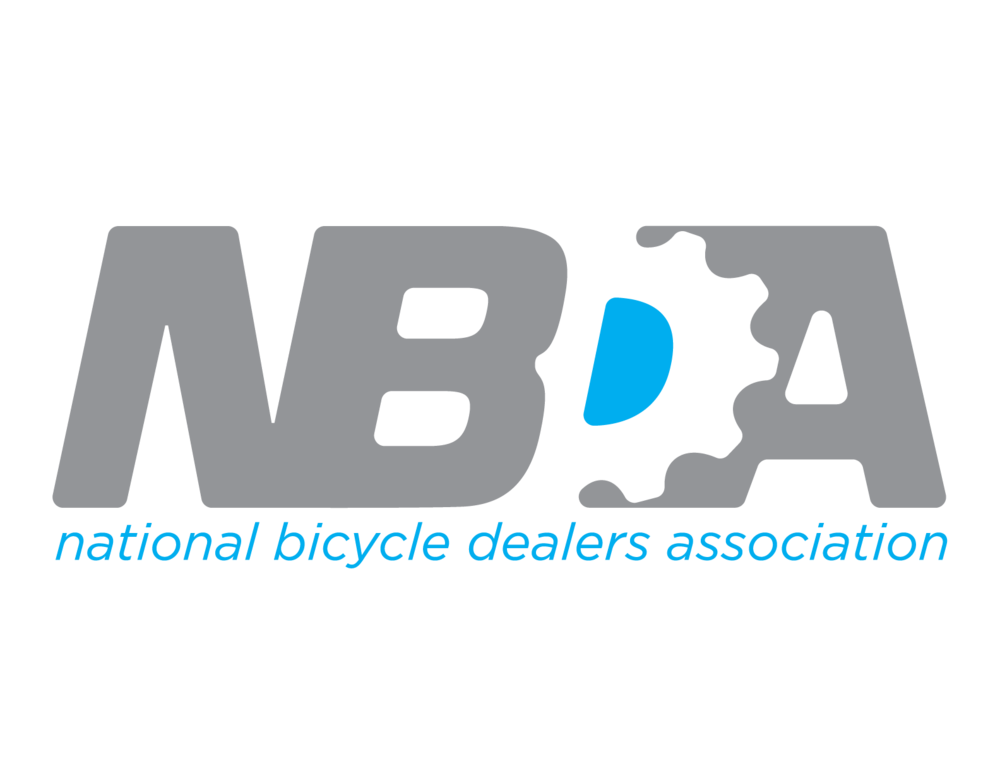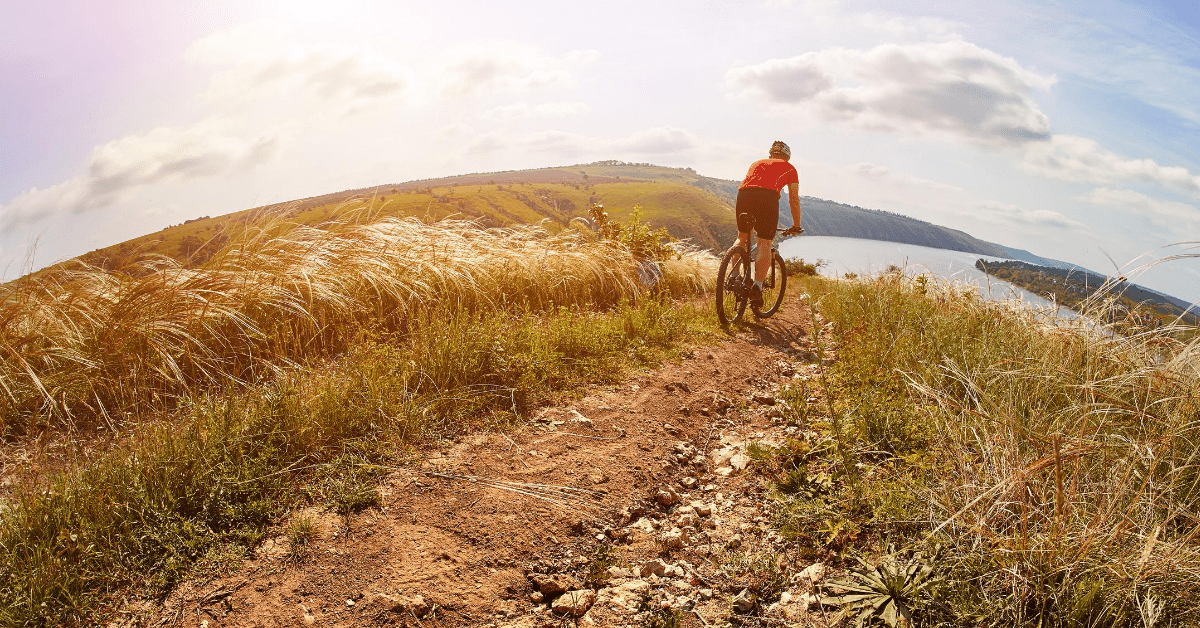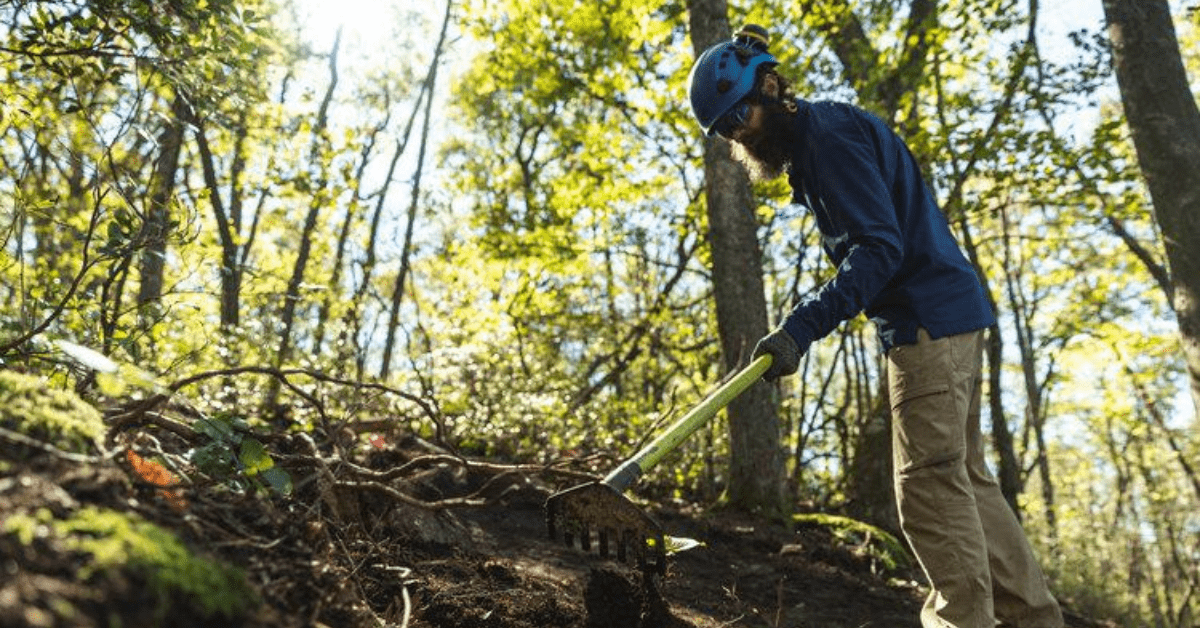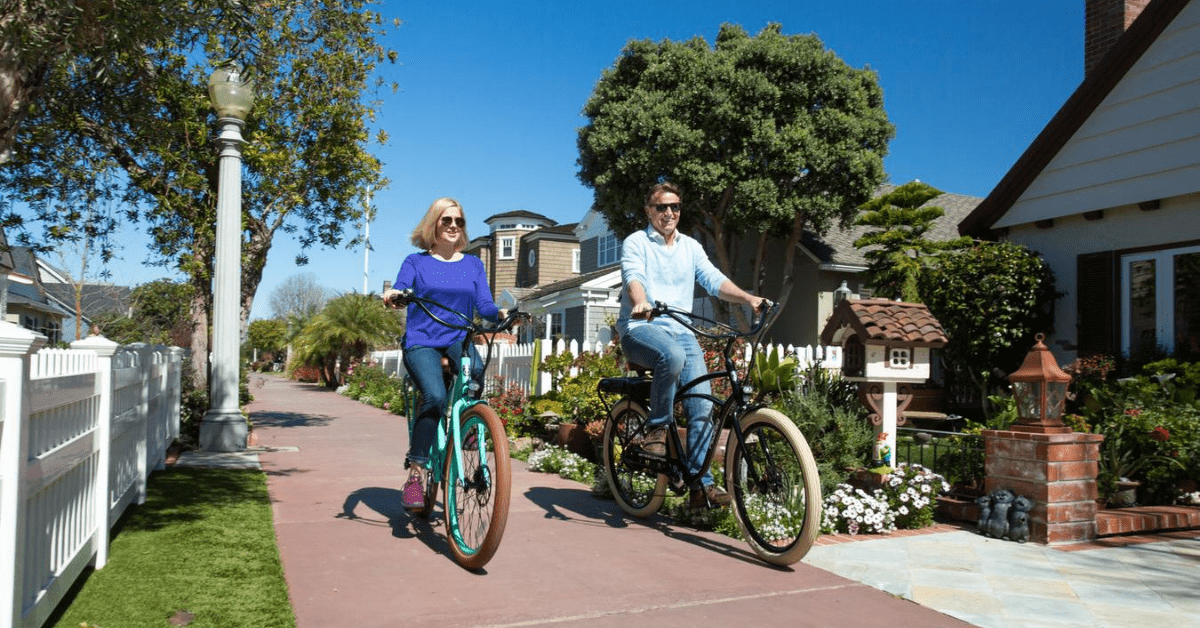The Secrets to Selling Adventure
How do you sell “adventure” in this new era of bikepacking and gravel grinders? We asked 4 top shops…
Words by Scott Chapin
Over the past decade, my work in the insurance industry has shifted exclusively to focusing on bicycle industry risks. As a cycling enthusiast, this suits me. I feel privileged to regularly speak with bicycle retailers from every state and province, and learn the ins and outs of their business models. It’s especially fun to talk bikes when my personal interests overlap with theirs, and never has this been truer than with the current crop of shops selling “adventure” riding.
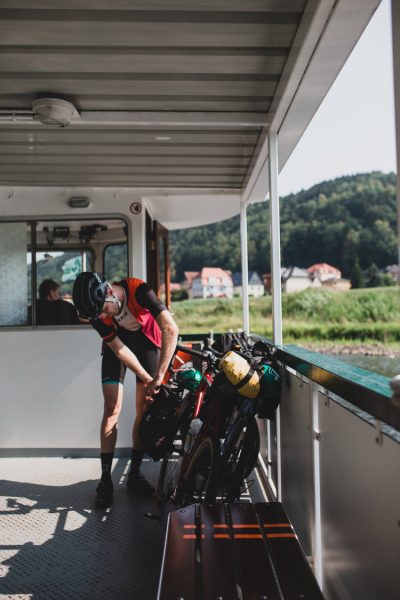
(8bar bikes)
Twenty-six years ago, while finishing up college, I bikepacked across Europe, hitting 10 countries in as many weeks—most of the time without a map or cell phone. My two travel companions and I chose significant portions of our route by taking turns at each intersection to choose “left, right or straight,” guided by little more than a signpost, our impressions based on what we could see, and what feels today—in an era of GPS units loaded with pre-planned routes—like a very keen sense of adventure. That experience, though distant, still shapes my definition of adventure, as have a multitude of arguably less ambitious rides. As such, I love talking to retailers about their own latest forays into the wild unknown, and how they’re helping communities of cyclists in their own backyards to stray fearlessly beyond the blacktop and painted lines of civilization.
With adventure/gravel/all-road riding trending across our industry, I wondered about the so-called secret sauce of “selling adventure.” How are some of the leading retailers in this space “getting butts on bikes,” and then, presumably, out of their comfort zones on king-hell off-road adventures and bikepacking trips? I spoke with a handful of retailers that specialize in “selling adventure” conceptually—alongside the products and tools that enable their customers’ adventures—about what makes their business models work.
Before we start, though, I think it’s important to consider what “adventure” means in a bicycling context. The Merriam-Webster Dictionary defines adventure as: “1a) an undertaking usually involving danger and unknown risks; 2) an exciting or remarkable experience.” Personally, I believe adventure cycling is a combination of both definitions. That means riding a route you’ve been on 20 times is NOT an adventure, but a bike ride. There are very few unknown risks, and it’s doubtful that the experience will feel “remarkable” to you.
But adventure is a subjective idea that’s relative to your own experience. My idea of adventure is going DEEP into the national forest on my gravel bike, traveling on roads that I’ve never ridden, generally far from the relative safety of people and services. While there are certainly unknown risks that come with being so far from amenities, there are countless “rewards”—like amazing scenery, spotting wildlife, and not seeing another soul for hours at a time. For less experienced riders, though, doing a short ride on the outskirts of civilization may still have those two key ingredients—unknown risks and a remarkable experience—that meet our definition of “adventure.” (Note: I actually do like people, but sometimes it’s nice NOT to see them for a while.) With no further ado, it’s on to the shops:

(8bar bikes)
Spokengear Cyclery & Outdoor
Two Harbors, Minnesota
Spokengear is located on the edge of Two Harbors, a small town about a half-hour north of Duluth, along the north shore of Lake Superior. Owned by Dan Cruikshank and managed by Josh Kowaleski, the shop comprises three businesses under one roof—bike shop, café and custom bikepack manufacturer Cedaero (which is sold by about 50 dealers nationwide)—and caters to those interested in gravel riding, exploring, bikepacking and any other type of adventure that can be found on a bicycle.
Fortunately for them, the Superior National Forest is practically in their backyard and provides endless options for customers to ride and bikepack. Walking into Spokengear, customers encounter a Salsa—the shop primarily sells Salsa gravel and touring bikes—gravel bike “fully loaded” with Cedaero bags and camping gear. Just looking at such a bike may be enough to get people excited about “adventure.” But couple it with a staff passionate about bikepacking and gravel riding, and you’ve got the recipe for an engaged customer base.
Besides being able to fully outfit its customers with all the products needed for bikepacking, Spokengear also provides opportunities for them to embark on their first adventures in the controlled, relatively safe setting of a guided trip. Last year, they did a guided winter bikepacking trip and handled all of the logistics. They took 12 people on a 10-mile ride, set up camp and slept outside of one of their customers’ cabins, which served as a backup and confidence booster for those who’d never camped in the cold. Nobody slept inside. The winter trip was such a success that they did something similar during the summer. The biggest benefit for customers was having the experienced staff members along to answer questions about logistics and gear, as well as making the newbies in the group feel comfortable pushing their boundaries.
“The tours have been an effective way to sell product, including upgrades,” says Kowaleski,” and they keep them coming back.” Spokengear is taking a multi-pronged approach to adventure, though, and rents fully outfitted bikes to visitors and curious locals alike. This has generated enough business that they’re looking to expand their outfitting services.
Kowaleski maintains that it’s staff members’ personal interest in bikepacking and gravel riding that sells the concept of “adventure,” which in turn sells the actual adventures, and the gear that goes with it. But they’re also realistic about meeting customers where they are, and treating gear—and bikepacking, he admits, is gear-intensive and pricey—as a means to an end, rather than the end itself. “We encourage our new customers to beg or borrow equipment (but definitely don’t steal it!)—just grab a bike and get out there.”
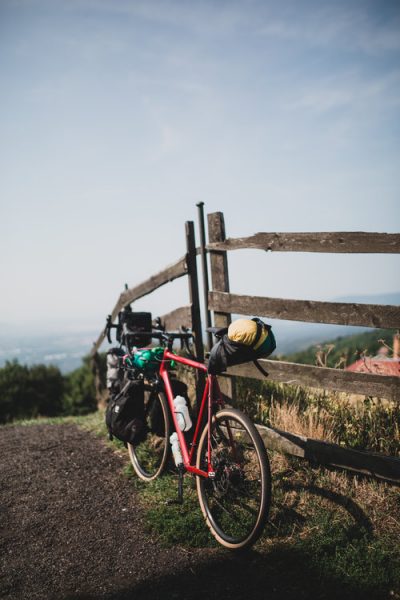
(8bar bikes)
World of Bikes
Iowa City, Iowa
After 40-plus years in business, World of Bikes found itself flanked by rival shops, and in desperate need of a niche to distinguish itself. As the hometown of 33,000 students attending the University of Iowa, Iowa City is a popular place for cyclists—and also, it turns out, surrounded by gravel roads in all directions. So World of Bikes settled on “gravel adventure” as its specialty, though its still sells all kinds of bikes. A Salsa and Trek retailer, the shop can outfit its customers with adventure hard and soft goods, including bags by Cedaero, Oveja Negra, and Revelate Designs. They don’t sell camping gear, though, since they partner with nearby outdoor specialty store Fin and Feather, which assists with in-store presentations about camping gear.
World of Bikes has an open floor plan that, manager Adam Blake says, encourages customers to interact with the manager, sales, and service department staff, all of whom are passionate about adventure cycling. Beyond general enthusiasm and encouragement, they sell the concept of adventure by putting on their “Adventure Series,” a once-a-month overnight bikepacking trip that scales throughout the season, starting with shorter rides in the spring and ending with longer, more ambitious ones in the fall. Each trip is promoted via the shop’s Facebook Events page, where they provide a link to the route, along with the recommended gear for the trip. The rides are supported by staff members, who are there to address customers’ questions along the way. This has been a super effective way to add new customers, Blake says, and there have been new participants on every one of the events to date.
Additionally, they host a no-drop gravel ride each Monday and provide a GPX route that can be downloaded ahead of time, or used later by those customers who can’t make the ride. Most of the group ride participants are “regulars,” and Blake believes these rides help cement their relationship with the shop.
As with Spokengear, Blake and his World of Bikes employees understand that bikepacking requires a higher-than-average investment. Still, they recommend that their customers “don’t spend too little. If you try to cut corners,” Blake says, “you won’t enjoy the experience as much.” Until they’ve built up their kit, though, he encourages customers to borrow gear and go. The experience, he says, speaks for—and sells—itself.
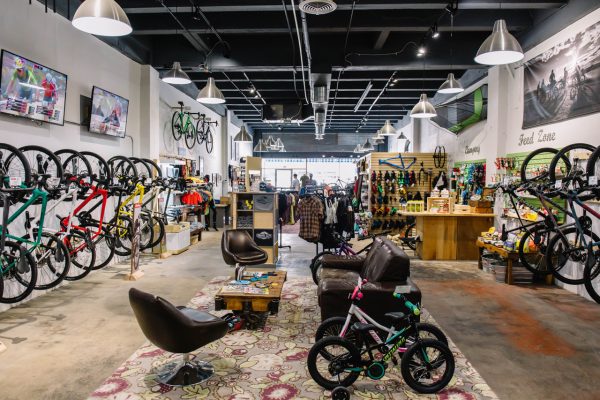
Gravel City Adventure & Supply Co. in Emporia, KS is ground zero for the world-famous Dirty Kanza.
Gravel City Adventure & Supply Co.
Emporia, Kansas
Located between Wichita and Topeka on eastern Kansas’s upland prairie among the Flint Hills, Emporia is a college town of 25,000 people that’s surrounded on all sides by dirt and gravel roads. It’s also home to Dirty Kanza, the cycling world’s oldest, and most famous, gravel grinder. What began in 2006 with only a couple dozen participants today is contested in early June by nearly 3,000 cyclists from around the globe.
Adventure City itself was founded and is co-owned by DK founder Jim Cummings, along with Tim Mohn and Leland Dains. Six months ago, Aaron Apel—the founder and former owner of Big Poppi Bicycles in Manhattan, KS—took over as manager following a hiatus working what he calls “a regular desk job.” He says that he and his wife, Melanie, were excited to move to Emporia because the city fully embraces the adventure lifestyle. “Adventure is a lifestyle,” he says, “and our shop sells all sorts of products, including lifestyle products and clothing.” Mohn Standard, which is owned by Tim Mohn and sources clothing from the fashion industry as well as many other lifestyle products like beard oil and shaving brushes, occupies about one-third of the retail space. Aside from that, the shop is stocked with gravel bikes and bikepacking gear (including Cedaero bags), but not a lot of camping gear.
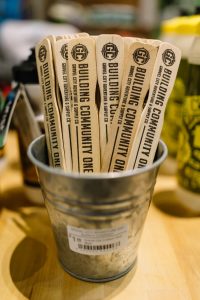
Branded mud scraper sticks for removing that famous Flint Hills peanut butter mud from your drivetrain.
To help sell adventure, Gravel City staff and shop “ambassadors”’ host three to five bikepacking trips per year, which help familiarize customers with the experience, and educate them about gear (and they yield a fair amount of sales, to be sure). The shop also provides dozens of pre-selected and vetted gravel routes for visitors and locals alike to ride. For those who aren’t ready to purchase a full bikepacking kit, the shop does set aside some gear for customers to borrow, and Apel says that goes a long way toward breaking down the barriers to entry.
“I feel there are a lot of people who are getting burned out on the racing side of things,” Apel says. “People are starting to feel comfortable with just doing events for the fun of it.” That’s an idea that really resonates with me, and my own experience. Shops like Gravel City see it as part of their mission to sell people on the idea that “It’s OK to just ride” (you don’t have to race), and to “give customers permission to lift their heads up, and have a look around.” Since the shop’s entire staff is into the gravel adventure experience, it’s easy for them to “be excited for everyone,” and that excitement gets their customers excited about heading out into the Flint Hills for their own version of adventure.
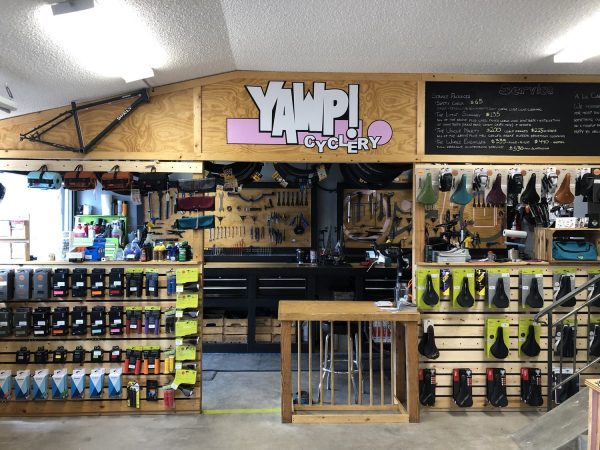
YAWP! Cyclery in Edgewater, Colorado.
YAWP! Cyclery
Edgewater, Colorado
When Levi Teal opened YAWP! five years ago in the Denver suburbs, his business plan was simple: sell Surly. And while he succeeded on that front—today it’s Colorado’s largest-volume Surly dealer—it wasn’t long before local market demands helped morph YAWP! into more of an adventure shop, with roughly half of its sales associated with bikepacking and adventure riding, and the other half going to commuters.
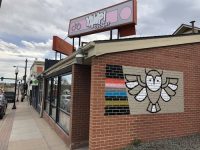
YAWP!
Consistent with the other shops I interviewed, YAWP!’s entire staff is into bikepacking, and helps coordinate at least two overnight bikepacking trips per year (in summer and winter) for its customers, as well offering them extensive route planning help (they’ve actually created a booklet of routes). Their efforts have been so successful, Teal says, that they now have a core group of customers that regularly embark on bikepacking trips together.
Aside from all sorts of bicycles, they also sell Oveja Negra, Cedaero, and JPaks frame bags. As with some of the other shops, YAWP! doesn’t stock a full line of camping gear, since there’s an REI nearby.
The Takeaways
As I spoke with each of these four shops, I noticed a few obvious parallels worth mentioning:
-
Shop employees are extremely enthusiastic about “adventure riding,” and spend a lot of their free time doing these types of activities
-
Shops are located within close proximity to areas where you can ride gravel, bikepack and explore beyond pavement
-
Shops have created GPX routes that help visitors and existing customers alike feel comfortable getting ‘off the beaten path’
-
Shops coordinate off-site events, including summer and winter bikepacking, bike fishing, and gravel group rides
-
Shops have at least one fully-loaded display bike on hand that inspires customers and helps them imagine themselves on adventures.
-
Shops sell or can help customers get fully outfitted for a multi-day trip
Looking at this list, it appears that the keys to selling adventure are deeply rooted within the members of a shop’s staff. If they’re personally passionate about getting off the beaten path, then it’s only natural for them to share that passion with their customers and, in the process, transfer it to them. Additionally, being able to help customers with a variety of routes that are scaled to their ability helps immensely. Many people aren’t comfortable riding off the main roads and trails, or camping, so “vetted” routes with written narratives can offer a huge confidence boost. Lastly, hosting gravel rides and bikepacking trips helps create community, which helps drive and retain business to the retail shop.
 The NBDA has been here since 1946, representing and empowering specialty bicycle dealers in the United States through education, communications, research, advocacy, member discount programs, and promotional opportunities. As shops are facing never-before-seen circumstances, these resources offer a lifeline. Together, we will weather this. We at the NBDA will not waver in our commitment to serving our members even during this challenging time—but we need your support.
The NBDA has been here since 1946, representing and empowering specialty bicycle dealers in the United States through education, communications, research, advocacy, member discount programs, and promotional opportunities. As shops are facing never-before-seen circumstances, these resources offer a lifeline. Together, we will weather this. We at the NBDA will not waver in our commitment to serving our members even during this challenging time—but we need your support.
Now is the time to become a member as we join together to make one another stronger. Whether you’re a retailer or an industry partner, your membership in the NBDA is one of the best investments you’ll make this year.
Learn more about the benefits of being a member and join now.
